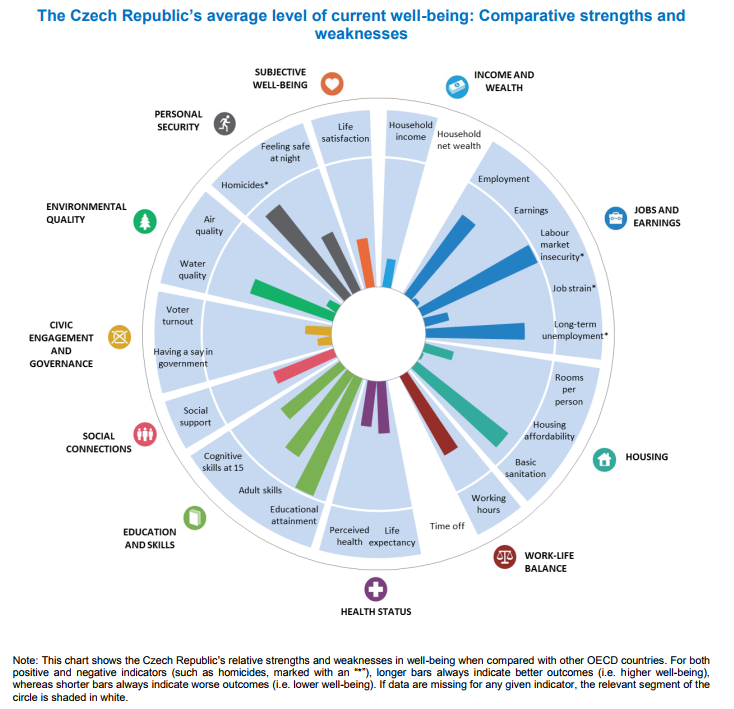
According to OECD 2017 How's Life report, relative to other OECD countries, the Czech Republic has mixed outcomes across the different well-being dimensions. Average earnings are in the bottom tier of the OECD, and the average household net adjusted disposable income remains below the OECD average.
However, the employment rate (72%) is above the OECD average (67%), and labour market insecurity is among the lowest in the OECD. Life expectancy at birth (79 years) is one year below the OECD average, and only 61% of Czech adults perceive their health as “good” or “very good”, compared to 69% in the OECD on average.
Educational attainment is the highest in the OECD: 93% of the Czech adult working-age population have attained at least an upper secondary education, compared to an OECD average of 75%. The Czech Republic also performs relatively well in terms of personal security. Although well below the OECD average, life satisfaction is among the highest in East European OECD countries.

Source:OECD
According to the report, when compared with the migrant populations of other OECD countries, migrants living in the Czech Republic have a relatively good situation regarding poverty, employment, unemployment, over-qualification and social support. Migrants settled in the Czech Republic rank in the middle third of OECD-country migrants for household income, in-work poverty, atypical working hours, housing and environmental conditions, and life satisfaction.
They are in the bottom third for 6 out of 17 selected well-being indicators. Migrants in the Czech Republic experience lower well-being outcomes to the native-born population for 5 out of 11 selected well-being indicators. However, migrants in the Czech Republic report similar levels to the nativeborn population in perceived health, social support, environmental conditions, trust in the political system, life satisfaction and feeling depressed..
Read full report.